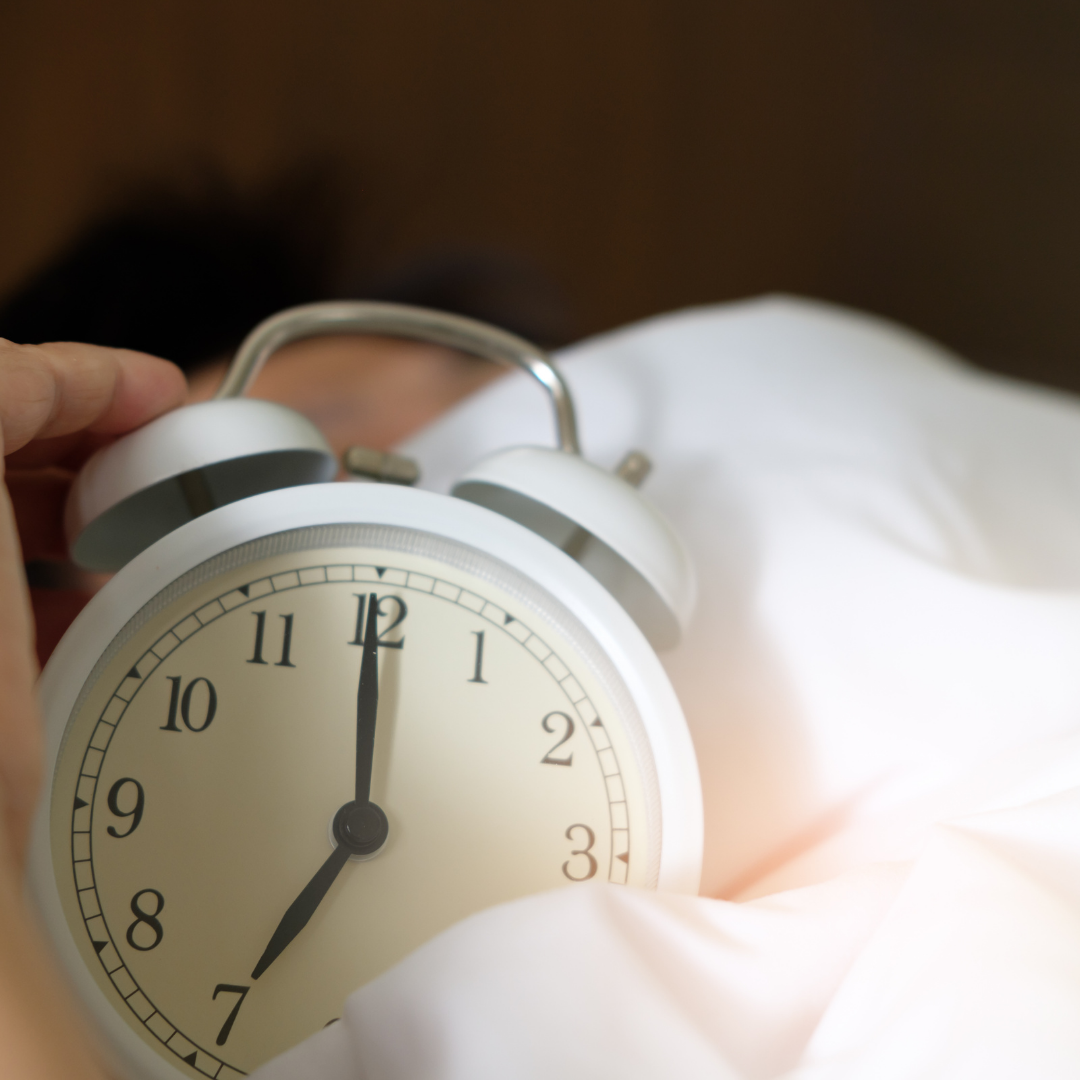5 Signs It Might Be Time To Get Help For Your Anxiety
“These mountains that you are carrying, you were only supposed to climb.” ~ Najwa Zebian
Some stress is good. Even some anxiety is good. But too much of either is bad, which is the case with most everything in life, right? Like, some chocolate cake is good, but too much is bad. But I digress.
So how are you supposed to know if it’s time to get help for your anxiety, or if it’s just the “healthy kind” that’s keeping you moving forward in life? I get this question a lot, and honestly the answer is not black and white. For me, as I mentioned last week in my blog about dealing with my own anxiety, it was the day I found myself unable to get off the kitchen floor because I was so anxious - my anxiety was interfering with my life and I knew I needed to do something about it. However, everyone’s “Ah-ha moment” will be at a different time in their journey. So how are you supposed to know? Don’t worry - I got you! Today, I’m sharing the difference between healthy and unhealthy anxiety, along with certain signs that it might be time for you to get help so that you can start to live a more grounded and happier life.
Healthy vs. Unhealthy Anxiety
Everyone feels anxious from time to time. Our body and mind are designed to keep us alive. So when there is an immediate threat, like jumping out of the way of a moving truck or running from a bear, our mind sends a stress signal to our body to basically do whatever it takes to stay alive. The mind also doesn’t know the difference between an immediate threat or a perceived one. So, if you are anxious about an upcoming work presentation or a difficult conversation with a loved one, stressed-induced hormones are still released into your bloodstream to “keep you alive”, which can actually stimulate you to move forward toward your goal.
Think about it this way - healthy anxiety simply influences the activities that you are anxious about. Remember how you felt the night before a big test or presentation? The worry you felt probably made you study harder or practice a few more times. It’s a good thing! Healthy anxiety helps you reach your goals and is focused on the task at hand. Unhealthy anxiety, however, is less focused and will prevent you from reaching your goals.
Going back to our “night before the test or presentation” example - if you were also worried about the traffic you might run into on the way to the event, or if you’d have time to eat, or what your future would hold if you failed the test or bombed the presetnation, that might be considered unhealthy anxiety. These scattered thoughts could actually get in the way of you studying harder or practicing more because your mind won’t let you concentrate on the task at hand. And over time as these types of scattered worries build, you might start to second guess or doubt yourself, you might stop doing things you love and eventually feel like your anxiety is running your life.
That’s the general difference, but let’s explore some specific signs to help you identify when healthy anxiety might become unhealthy.
Signs you Might Be struggling With Unhealthy Anxiety
1. Anxiety is interrupting your Life
Using the information above, if you begin to notice that you can’t make a decision, don’t feel focused on a task or feel like everything takes longer than it should, your anxiety is interrupting your ability to be happy and live the life you deserve. It feels like your anxiety is in control, driving the car, and you are just along for the ride.
2. You stop doing things you enjoy
The moment you notice you are saying ‘no’ to something you used to love to do is a sign that your anxiety might be unhealthy. Maybe you love to ski but now are too worried about hurting yourself or upsetting the people you usually love to ski with, so you opt out of going.
3. You’re exhausted
When you have unhealthy anxiety, it’s very difficult to quiet your mind. This impacts the body in two ways. First, an overthinking mind might keep you from getting a good night’s sleep. Once and a while, this is ok. But if it prolongs over a period of time, you will feel exhausted from not getting enough rest. Second, when we are focused on our overthinking mind, our energy moves up and out of the body. You aren’t physically exerting yourself, but you feel exhausted because you are using tons of energy processing and focusing and all of these thoughts.
4. You Don’t Voice Your Opinion or You Apologize for Speaking Up
When unhealthy anxiety takes over, you start to second guess yourself and feel as if you don’t matter. Therefore, when it comes to sharing your opinions, you might worry about annoying other people or you might not have enough confidence in yourself to say anything. Or, if you do decide to speak up, you might also immediately apologize for having that opinion.
5. You’re Experiencing Panic Attacks
A panic attack is an intense spike of anxiety. It’s when the scanning for danger function of your brain becomes completely flooded. Think of it like an intense wave of emotions that rushes in and peaks within minutes. It can feel like it comes out of the blue and the physical and mental symptoms are extremely scary. You might feel like you are dying, nauseous, dizzy or detached or feel like you are having a heart attack. If this is a regular occurance, you are most likely struggling with unhealthy anxiety.
Other signs include:
Feeling isolated
Backing out of obligations
Unable to do daily life-activities (like drive over bridges or ride elevators)
Feeling chronic tension or pain in your body
If you won’t leave your house
Persistent negative self-talk
The anxiety has lasted more than a few days
Steps You Can Take For Unhealthy Anxiety
When you are first struggling with unhealthy anxiety, talk therapy and/or medication can really help you get a handle over your anxiety rather quickly. You first want to contain it so you can start to analyze why it’s happening in order to potentially resolve it. With that said, there are other effective ways that might help as well!
Below are a variety of options, in addition to talk therapy and medication, that may help reduce your anxiety and stop your overthinking mind.
Journal daily
Exercise regularly
Change your diet to avoid foods and drinks that stimulate the nervous system
Connect with others
Improve your sleep
Meditate regularly
Apply stress management techniques
Practice mindfulness by bringing your awareness to the present moment
Practice Emotional Freedom Technique (EFT - Tapping)
Work with a Hypnotherapist
Learn and apply Ayurveda techniques to balance the body
Take herbal supplements suggested by a Naturopath Doctor
Get Acupuncture treatments on a regular basis
Work with a Massage Therapist that specializes in easing anxiety
Practice Yoga regularly
Work with a Life Coach
Personally, I have used many of the above techniques to manage my anxiety. Some I found extremely helpful at the times I used them and others didn’t resonate for me. I had to explore all my options and try out the ones that I thought could work. The key to knowing which technique will be right for you at any given time comes down to self-awareness and trying it on.
Whatever steps you decide to take, I hope you know you deserve it. Unhealthy anxiety has a way of tricking your mind into believing that you don’t get to be happy. And that’s simply not true. Recognizing the signs of unhealthy anxiety is the first step. Moving toward better managing it is the second. My hope is that you now know the difference between healthy and unhealthy anxiety so that you can take action toward living the life you deserve!






